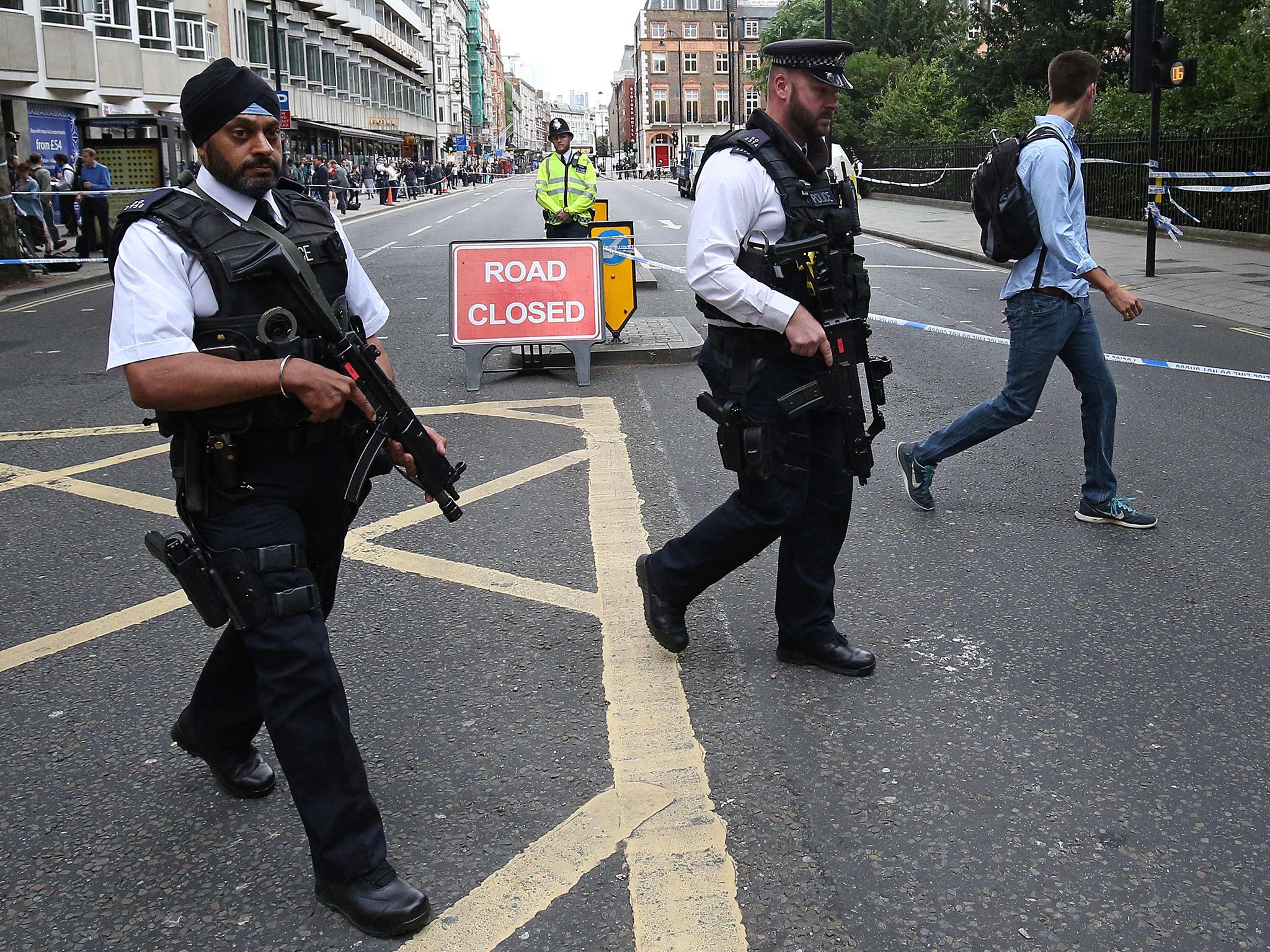There is no going back once we arm our police force
It is possible that, within a few years and with no great national debate or legislative act, the long tradition of unarmed civilian policing may slowly come to an end, especially in larger cities

The murder of one and injuries to five other people in London, apparently at random, comes at a moment when urban populations throughout the West are feeling vulnerable, and their governments unsure as to how to respond.
The police in the capital were swift to emphasise that “mental health issues” were at play here, and it was not necessarily another act of so-called jihad. That is, at least, some reason for relief.
However, the long series of high profile terror and other attacks since 9/11 has made urban dwellers in particular feel fearful. In many cases, the line between the mentally and the politically disturbed is extremely blurred, and there is a case for regarding anyone who carries out an act of mass murder as being insane almost by definition. In which case, we have to ponder whether all the IRA’s bombings were carried out by lunatics, or whether the car bombings that have become routine in the Middle East can be ascribed to individuals who must be mad, too.
Whatever the semantics, some of the answers to these problems are the same. Arming larger numbers of our police, for example, seems an obvious one, and has already started in the capital under new London Mayor Sadiq Khan. It is possible that, within a few years and with no great national debate or legislative act, the long tradition of unarmed civilian policing may slowly come to an end, especially in the larger cities.
Of course there should be a debate about that, because the consequences could be grim indeed. Once constabularies are armed, it changes the whole dynamic of policing by consent. It obliges those who try to portray efforts to tackle terrorism as a ‘war on Islam’, too.
Usually, as we see in Northern Ireland, there is no going back from a force that has guns and armoured vehicles as its usual equipment. Certainly the photographs of masked Metropolitan Police officers with machine guns resembling something from a dystopian vision of the future is enough to make law-abiding citizens as worried as anyone set upon evil. Is that really what we choose?
Dealing with radicalisation among those vulnerable to it, possibly linked to their mental state, is another lesson to be drawn. It is hardly novel to point out that mental health has long been neglected, although the climate has changed markedly for the better in recent years, with campaigns to ensure that it is taken as seriously as physical health gaining ground. There is much still to do, of course.
Despite everything that has happened in terrorist outrages from New York, to Madrid, to Nice, life in the West continues to be safe and very few people will suffer any direct contact with terror in their lifetimes. That is in stark contrast with so many parts of the world where political violence and war are a part of life. Even so, these are nervous times.
Join our commenting forum
Join thought-provoking conversations, follow other Independent readers and see their replies
Comments
Bookmark popover
Removed from bookmarks